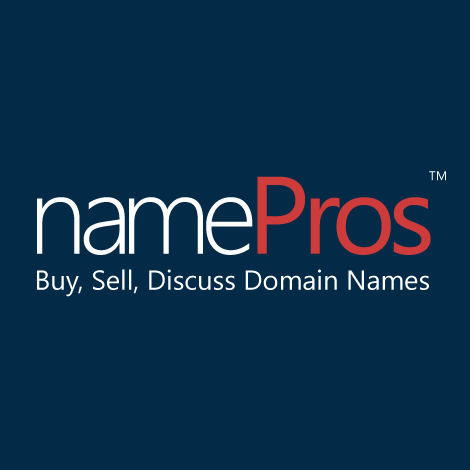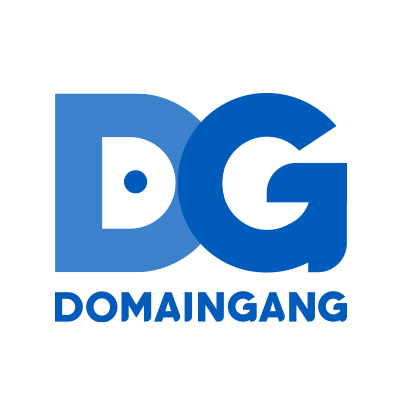YOUR AD HERE
Interesting idea but has the potential to add unneeded complexity and confusion for users, and impact SEO and social sharing for site owners.
.
Interesting idea but has the potential to add unneeded complexity and confusion for users, and impact SEO and social sharing for site owners.
.
In what way? Sounds like it would be a rather straightforward implementation - as the OP stated, a simple inclusion of a new meta tag. Only would pose a problem if webmasters deliberately made it confusing like having their web address come up as tEStteaM.com
In what way? Sounds like it would be a rather straightforward implementation - as the OP stated, a simple inclusion of a new meta tag. Only would pose a problem if webmasters deliberately made it confusing like having their web address come up as tEStteaM.com
URLs are case sensitive so if multiple versions of your site address are getting linked to it has the potential to dilute Iink juice and social virality.
Not 100% sure how each platform currently handles this as technically the domain isn’t case sensitive but the rest of the URL is. But many potential issues.
And opens the door for abuse from scammers as it’s another attack vector.
Future Sensors
78% of human domainers will be replaced by robotsTop Member
If you have already arrived at the website, you can easily arrange how your company name is displayed on the website itself. It makes no sense to adjust the presentation of the domain in the URL for this.
True, but I thought that only included whatever came after the ".com/", or am I incorrect? For example if you type in Youtube.com/ABC it auto changes the domain to the lowercase y version but keeps everything after the same.
True, but I thought that only included whatever came after the ".com/", or am I incorrect? For example if you type in Youtube.com/ABC it auto changes the domain to the lowercase y version but keeps everything after the same.
Yes, see my second paragraph
The question is how does Google/Facebook/Bing/whoever treat Youtube.com vs youtube.com -- non-zero chance they are seen as separate URLs by at least some of the platforms and/or subsystems within them.
That's a good idea.
However, I think the use of uppercase and lowercase letters is subjectively determined by humans and lacks a unified rule.
For example, ABBLLI.com—can you establish a clear rule specifying which letters must be capitalized for easier recognition?
Future Sensors
78% of human domainers will be replaced by robotsTop Member
I’m not talking about the DNS side of things. I mean for things such as Googles page ranking (and other factors), Facebooks sharing url comments, and things of that nature.
If people start widely using the Title Case domain name when linking/sharing there are lots of little issues like this that I’m not 100% sure of the downstream effects.
Future Sensors
78% of human domainers will be replaced by robotsTop Member
@Kyle Tully Not just with 0x20 in DNS. Search engines encounter all kinds of URLs on the Internet containing domains that point to the same website, but are capitalized in a different way. These search engines normalize all these domain names and consider them identical, as should be done according to the standards. Do you have concrete examples where this does not go well? I am curious about that and then we can analyze and discuss it.
Mostly hypothetical just thinking out loud at different things that could go wrong.
I think the dangers of dodgy websites using different case for phishing etc is probably the bigger concern.
Last edited: May 19, 2024
Domain names are not case sensitive and so the web browsers change the letters even typed in capital letters to small letters for many reasons.
* Domain name (Name.tld) is not case sensitive
* But, the complete URL (the path after the domain name) may be case sensitive if it's hosted on a Linux/Unix server (name.tld/Capital) is case sensitive. Trying to load name.tld/capital will result in page not found.
But may be a small code can be created by browsers that the developers can include in the websites to tell which letter(s) of the domain name should be capitalised and browsers just follow the same to display the particular letters of the domain name in capital letters.
But no one is going to see the url and they are not going to work on it as it will only increase the size of the page little more and in turn may increase page load time.
Last edited: May 19, 2024
Domain names are not case sensitive and so the web browsers change the letters even typed in capital letters to small letters for many reasons.
* Domain name (Name.tld) is not case sensitive
* But, the complete URL (the path after the domain name) may be case sensitive if it's hosted on a Linux/Unix server (name.tld/Capital) is case sensitive. Trying to load name.tld/capital will result in page not found.
But may be a small code can be created by browsers that the developers can include in the websites to tell which letter(s) of the domain name should be capitalised and browsers just follow the same to display the particular letters of the domain name in capital letters.
But no one is going to see the url and they are not going to work on it as it will only increase the size of the page little more and in turn may increase page load time.
Thanks for the astute insights, including the Linux/Unix server issue regarding capitalization.
While this might be a tangential issue, it is curious that the Afternic Dan landers convert the caps of a domain name to lower case. How it presents in the browser URL may not matter that much, but how it presents in the body of the page may.
@GoDaddy, can this be fixed, especially if it's a Linux/Unix server issue?
Last edited: May 19, 2024
Future Sensors
78% of human domainers will be replaced by robotsTop Member
@GoDaddy, can this be fixed, especially if it's a Linux/Unix server issue?
That's not the complete story. Better said, it also depends on the web server and application.
Future Sensors
78% of human domainers will be replaced by robotsTop Member
Also, I don't think anything has to be fixed re: URL.
CamelCasing on the lander: yes, would be nice indeed.
Last edited: May 19, 2024
Also, I don't think anything has to be fixed re: URL.
CamelCasing on the lander: yes, would be nice indeed.
Yes, the URL camel casing likely doesn't affect sales.
On the other hand, on a lander, it may be far more important. We are in a world with seemingly far shorter attention spans. Seconds trying to figure ourt the actual meaning of a domain name could make a difference.
Keep in mind that for a lander, someone who was interested in the domain may type in the name. They then see the ambiguity associated with all lower case. That could then prompt them to ditch that idea and seek alternatives instead.
Think of how many "Ai+word.tld" and "word+ai.tld" could have their selling potential impacted without the camel casing? And this could be especially true if the "Ai" is preceded or followed by letters that could form a different word.
In my experience, an Ai description tool repeatedly confused a city ending with cisco + med with "comed" as an abbreviation for "comedy." Camel casing might be helpful for such Ai tools, including even generating apprpriate key words.
Hopefully this is a practicce applied for ALL marketplace landers.
Last edited: May 19, 2024
Future Sensors
78% of human domainers will be replaced by robotsTop Member
@LoveCatchyDomains Because this thread started differently, namely about an idea/suggestion to make it possible to present the domain name differently in the URL location bar itself, confusion has arisen throughout this thread. As for CamelCasing the domain name on the lander website, I agree with you. That can be useful for the presentation.
Last edited: May 19, 2024
It is a great idea. Don't see any technical issues either.
A website owner can specify within its meta or css how it wants the domain part capitalized and the only thing that needs to be done is for browsers to learn to read the tag.
It won't affect anything else, as the difference in capitalization meaning completely different URL for linux/unix is attributable only to folders/files after the extension.
Last edited: May 19, 2024
@LoveCatchyDomains Because this thread started differently, namely about an idea/suggestion to make it possible to present the domain name differently in the URL location bar itself, confusion has arisen throughout this thread. As for CamelCasing the domain name on the lander website, I agree with you. That can be useful for the presentation.
Yes, sorry for any confusion.
My mention of tangentiality may have gone unnoticed.
The presentation of the domain name in the body of the lander issue is different from the URL issue. However, camel casing for both wouldn't be a bad idea--unless Unix/Linux servers involved can't handle that seamlessly.
This will never be implemented for security reasons. The website owner can't just decide that they want to capitalize paypai.com as paypaI.com or openal.com as OPENAl.com
Thanks for the astute insights, including the Linux/Unix server issue regarding capitalization.
While this might be a tangential issue, it is curious that the Afternic Dan landers convert the caps of a domain name to lower case. How it presents in the browser URL may not matter that much, but how it presents in the body of the page may.
@GoDaddy, can this be fixed, especially if it's a Linux/Unix server issue?
It's down to individual browsers, service providers, or in this case, marketplaces. As far as Afternic is concerned, we're currently working on camel casing options for some of our landers. Stay tuned!
 1 year ago
51
1 year ago
51






 English (US) ·
English (US) ·